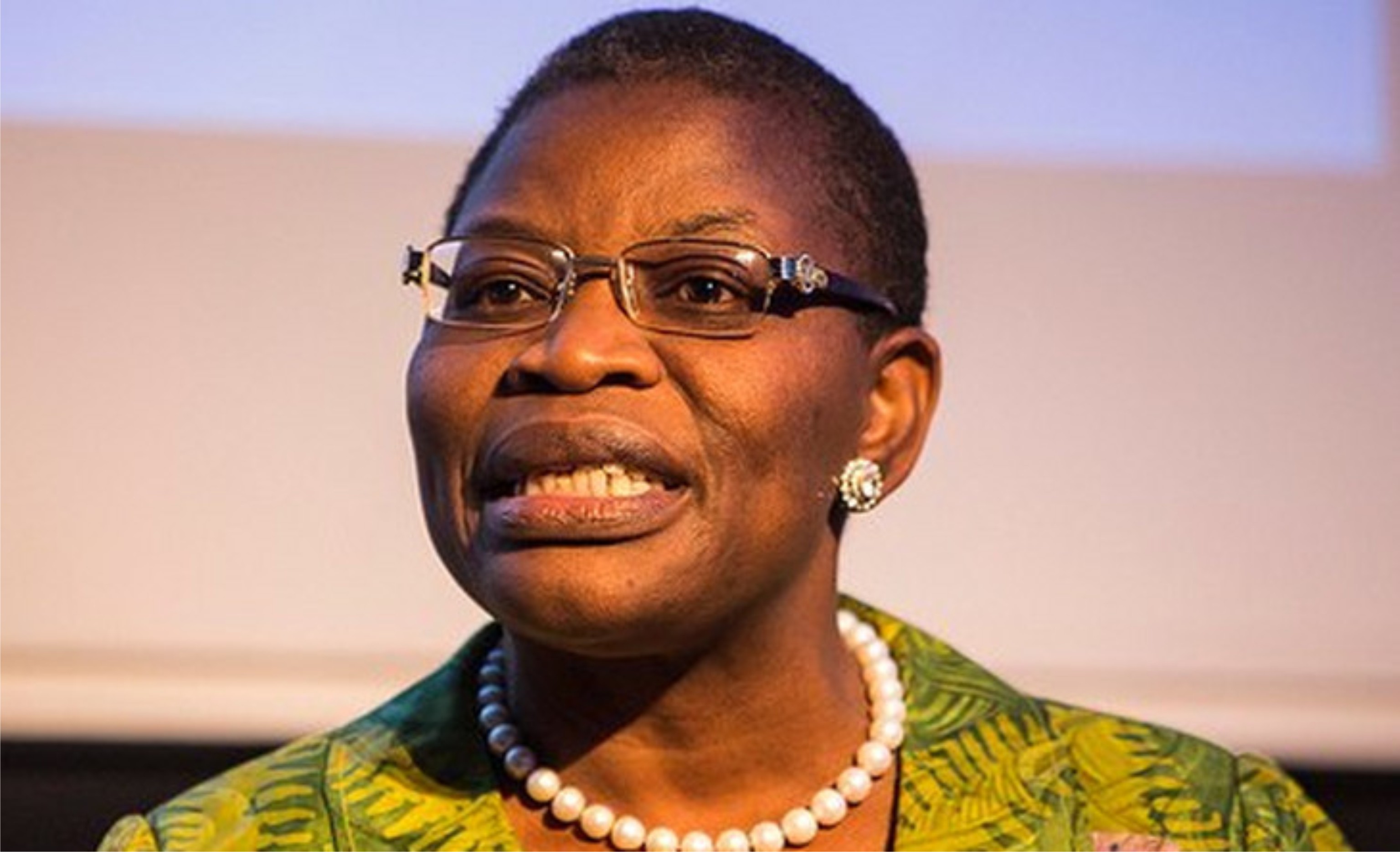Arts/Literary
Fosudo Emerges Winner Of 4th Beeta Playwright Competition
The grand finale of the 4th Beeta Playwright Competition organised by Beeta Universal Arts Foundation, ended last Wednesday, August 4, at the MUSON Centre, Onikan, Lagos with Temilolu Fosudo, son of veteran actor and academic, Prof. Sola Fosudo emerging the overall winner.
The Beeta Playwright Competition, BPC, initiated by Beeta Universal Arts Foundation, BUAF, which was founded by award-winning actress and producer, Bikiya Graham-Douglas in 2010, is an annual event that creates opportunities for budding Nigerian playwrights to hone their skills in creative writing. BUAF promotes arts through theatre production and education.
In addition to facilitating training workshops, the organisation has produced over 20 plays. About 538 entries were received for the 2021 edition of the competition.
The works of Nigerians in the Diaspora, including the United Kingdom and Canada, were part of the plays submitted.
Fosudo’s play titled: Black Dust which made the shortlist along with those of nine other contestants, earned him the first slot.
The winner also got the sum of N10 million as prize money from the sponsors. Kalayingi John-Africa’s Orchid, made her the first runner-up while the second runner-up was Ibukun Fasunhan who entered with the play, Beertanglement and like Fosudo, had reached the final stage of the competition in 2020.
Others in the shortlist include: Adesewa Akinyemi’s Your Nemesis, Chinazom Otubelu’s The Old Man Must Obey, Yemi Akande’s Flowers Will Smile Again, Gladys A. Nwaokoma’s Ya Gazie, Nyakno James’ Gaddo, Ifeoma Igwe’s Aye Wale and Olaide Mohammed’s The Indigent on the Throne.
Speaking at the prize-giving session of the event, the Founder and Curator of Beeta Universal Arts Foundation, Bikiya Graham-Douglas, revealed that it had indeed been a herculean task pruning the entries to the final list of 10, saying: “We received 538 entries from across the country and are thrilled that many young voices are taking this opportunity to share their stories with us.”
She also reiterated her resolve to ensure the sustainability of the project. “It can be daunting putting competitions and productions like these together, but we believe it is our responsibility and are committed to continuing to do so,” she remarked.
Explaining the possibilities the BPC holds for winners, she said: “Our past winners, Paul Ugbede, Abdul-Qudus
Ibrahim and Achalugo Chioma Ezeoke have since had their plays published and produced to audiences of over 30,000 in different parts of the country thereby introducing their work to the next generation.
“We have also seen tremendous success amongst our finalists with one of them, Dr Soji Cole going on to win the prestigious NLNG prize for Literature.”
Paul Ugbede had won the inaugural edition with his play, Our Son, the Minister while Abdul-Qudus Ibrahim emmerged the winner of the second edition out of 348 entries with the satirical play, Jagagba. Achalugo Chioma Ezeoke’s Daughters of the East won her the third edition.
Award-winning playwright and theatre arts guru, Prof. Ahmed Yerima led the distinguished panel of judges that decided the winners.
The other panelists include: filmmaker and creative industry veteran, Ms. Ego Boyo, book publisher, Ms. Ibiso Graham-Douglas, writer and producer, Ms. Ayo Jaiesimi and art journalist and critic, Dr. Shaibu Husseini.
It was an emotive moment for the Fosudos. Flanked by his joyous parents, Prof. Sola Fosudo and Mrs Yetunde Fosudo, the winner of the BPC4, Temilolu Fosudo enthused: “I feel overwhelmed.
“I was part of those that made the shortlist last year and I was the 2nd runner-up. I’m really grateful to the organisers for the opportunity.”
Speaking on the subject matter and dominant thematic preoccupation of his prize-winning play, the young Fosudo remarked: “I like to write about social issues. I’ve written about nine plays.
“My entry for this year, Black Dust, is about corruption and abuse of power. The protagonist is Oko Orin, husband of Music who is modelled after Fela and Malcolm X, two great revolutionaries I admire.”
Social/Kiddies
Who Should Name A Child?
Naturally, when a child is born, it is the role of the father and mother to decide a suitable name for the child. The husband and wife normally discuss and suggest the English or vernacular name of the baby.
But sometimes, when a baby comes into a family, grandparents hearts are usually filled with joy to the extent that they want to answer present, by giving their own names not minding the fact that the biological parents have given theirs.
This happens mostly when the marriage is an inter-tribal one. It also happens even in intra-tribal marriage. Grandparents want equal representation as far as naming a child is concerned. They also have special names as a result of circumstances surrounding the birth of the child.
This is still happening till date.
A lot of people have viewed this in different ways but there is nothing wrong about it. The most important thing is that the child bears as many names as he or she can. But one thing is certain, the child must bear one name in school.
Should circumstance determine a child’s name?
Women who are more emotional are always eager to name their children considering the circumstances surrounding the child’s conception and arrival.
The issue of grandparents naming a child comes up mostly when it is the first of the family.
In naming children by some parents in the olden days, they named their children according to the days in the week in which they were born, like Sunday, Monday, Friday and so on.
You may be shocked to hear that whether a child is given 10 names by parents or grandparents, when he or she grows up, will decide to change. There are several cases where some persons decided to change especially when they feel that the names given by their parents and grandparents do not give them joy. If they are not doing well in life, they may claim that their misfortune is caused by the name their parents.
Social/Kiddies
Children’s Performance Can Make Or Mar Them
Competition among children in schools be it primary, (kindergarten) and secondary come in different forms. It can be Mathematics , debate, quiz, spelling bee,competition, from organisations like Cowbell, multi-national companies, faith-based organisations among others.
They are organised mostly for selected intelligent ones, the best among their peers to represent a class, school or group. Prizes are normally set aside for the best as well as consolation prizes for runners-up at the end of each session.
The question is, are children willing to accept defeat when they fail? As parents, guardians, can you encourage your children or wards to accept defeat instead of shouting and comparing them with others who may be performing better either in schools or outside.
Some parents may be blaming their children for not doing well in competitions. They will like to tell their children if others who may perform better have ten heads. Those group of parents blame their children for every failure.
For your children to do better in competition, the parents too must have emotional intelligence. When you continue to blame your children for failure, how intelligent are you?
Some parents always want their children to be in the 1st position and unhappy whenever they secure 2nd position. There were instances where children smashed their trophies because they never got the position they wanted to get and their parents supported them.
Children should be able to accept it whether they win or not. They should be encouraged for every performance. Discourage the issue of “shame, shame, shame, shame”.
A parent says she always tells her children to win even if they will fail. Always give them the mentality that they can win. Children should be given the impression that they can win prizes and laurels in every competition.
Parents should not isolate their children from others in the neighbourhood. Allow them to play with others. Don’t threaten your children that you may not pay their schools fees if they fail. Comparing them with others may encourage or discourage them.
Coming first or getting award as a first class student from the university sometimes does not mean that the person is the best. And if the child does not merit any award in the lower classes, does not mean that he can not merit first class also.
It should be noted that coming first in academic competition may not really mean that the competitor will be the best at work place or business.
Accepting defeat is a way to move higher. Even if a child who competed with others did not come first, there are consolation prizes for runners-up. When you advise the child to accept defeat, you are encouraging her to win in next competition.
Remember all children cannot be on the same knowledge level Their learning abilities defer.
Eunice Choko-Kayode
Social/Kiddies
Raising Children In Today’s World
There is great anxiety in raising children in today’s world because things are changing. But the anxiety we think children are giving their parents these today’s may not be different from the one they gave their own parents.
Although every generation comes with peculiar issues. Nowadays, you have laptop, Ipad, Iphone, and other devices which have influenced their lives positively or negatively.
These days, distractions are high. When growing up, there was no Yahoo. There is the social media – facebook, whatsapp, twitter among others in vogue. They have both negative and positive impacts on the child.
Parenting means that what you desire from God about the children come to pass. Having faith in God while raising children is key. Trusting God on their behalf is important.
Children of these days can use what they have learnt to advance their lives. They are technically fit with modern technology. A lot of children help their parents and others around them to solve problems with the use of the numerous gadgets in their possession. Be it phones and laptops, even through the YouTube and software engineering in general.
The technics may differ from yesteryears to today. Their engagement in ICT may be keeping the children off from evil. The principles in technology can take them to places. Many of them have succeeded in earning jobs through ICT.
In parenting, keep the children off from evil. When a husband is beating his wife, perhaps the mother of the children, they are watching.
The children must be your friend. Cheer them up always. Build their confidence. Don’t kill yourself in raising children that are difficult.
-
News3 days ago
We’ll Renew Hope Of Widows, Widowers With Inclusive Policies – Fubara
-
Sports3 days ago
FG Lauds Diri’s Commitment To Sports Dev
-

 News1 day ago
News1 day agoFG Panics As #EndBadGovernance Protest Begins, Aug 1 …Yoruba Youths, Ezekwesili Call For Caution
-
Nation1 day ago
‘FG lnjects Palliatives Worth N1trn Into Manufacturing Sector’
-

 Nation3 days ago
Nation3 days agoHYPREP Project Coordinator Assures Ogoni Youths Of Sustainable Clean-Up
-
Rivers3 days ago
UNICEF Backs South-South States On Budgetary Allocations For Children
-
Business3 days ago
FG Launches Blueprint For Africa’s Digital Trade
-
Sports1 day ago
France’s Olympics Come Alive With Les Bleus Victory

